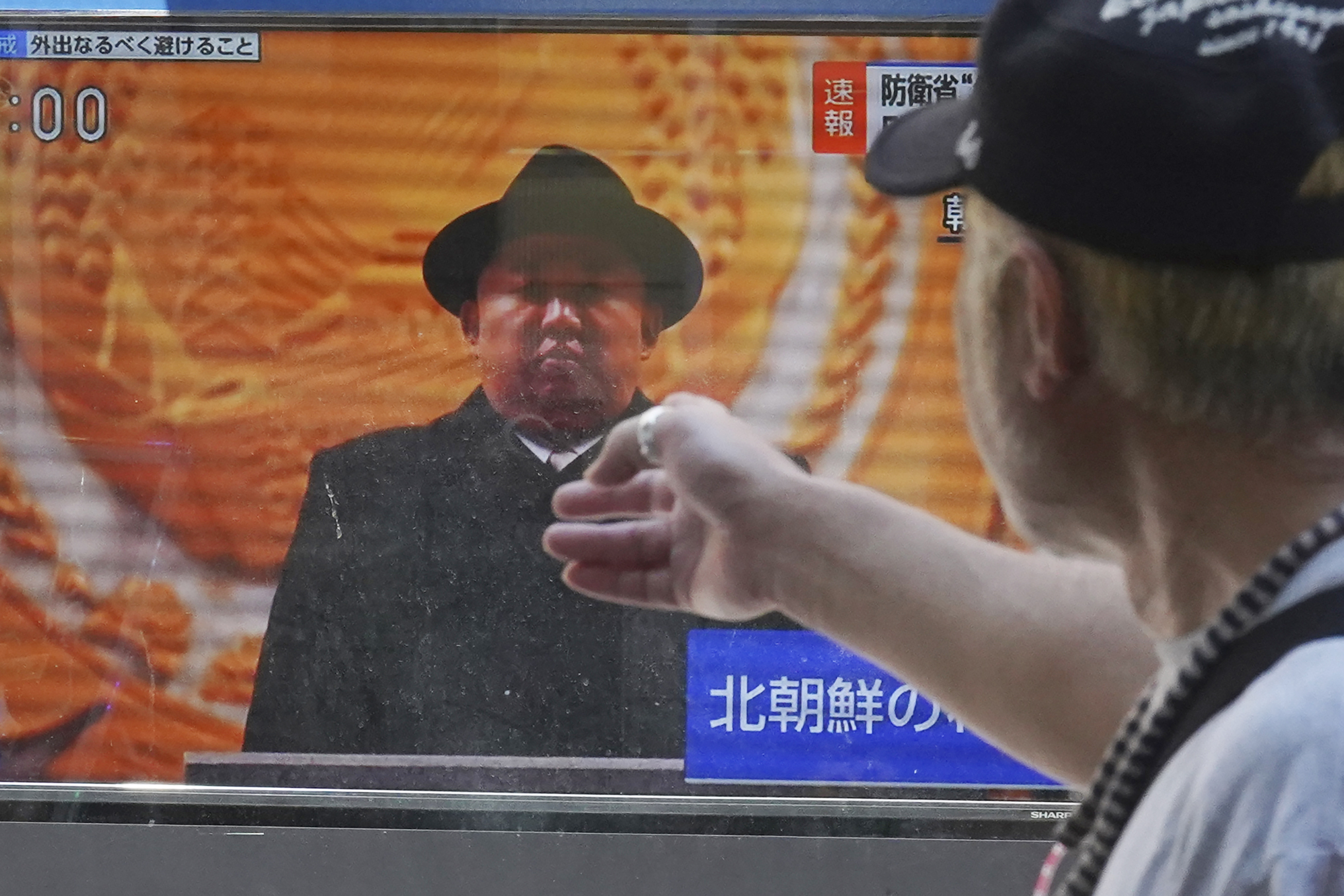
North Korea’s state media KCNA has confirmed that the country test-launched a Hwasong-18 intercontinental ballistic missile (ICBM), in what it described as a “warning” against nearby military activity from the United States and its allies.
Wednesday’s launch, which took place off the Korean peninsula’s east coast, provoked condemnation from South Korea, the United States and Japan.
The United Nations Security Council also said that it would convene a meeting to discuss the launch on Thursday, in response to requests from the US, Albania, France, Japan, Malta and the United Kingdom.
The missile test was initially reported by authorities in South Korea and Japan. South Korea’s Joint Chiefs of Staff said, for instance, that it had “detected what was presumed to be a long-range ballistic missile fired from the Pyongyang area around 1000 (01:00 GMT)”.
Japan’s Chief Cabinet Secretary Hirokazu Matsuno, meanwhile, issued a statement that the weapon flew for about 74 minutes, reaching an altitude of 6,000 km (3,728 miles) over a range of 1,000 km (621 miles), in what would be the longest recorded flight time for a North Korean missile.
Japan’s coast guard said the missile ultimately fell into the sea east of the Korean peninsula.
North Korean state media reported that the country’s leader, Kim Jong Un, personally oversaw the missile’s flight. “The test-fire is an essential process aimed at further developing the strategic nuclear force of the Republic,” the state media outlet KCNA said.
North Korea has stepped up its sabre-rattling this week, with Kim Yo Jong, the powerful sister of leader Kim Jong Un, condemning a United States plan to deploy a nuclear missile submarine to waters near the Korean peninsula and threatening to shoot down spy planes after claiming US reconnaissance planes recently violated its air space.
Leif-Eric Easley, a professor at Ewha University in Seoul, said the comments were “part of a North Korean pattern of inflating external threats to rally domestic support and justify weapons tests.
“Pyongyang also times its shows of force to disrupt what it perceives as diplomatic coordination against it, in this case, South Korea and Japan’s leaders meeting during the NATO summit,” he said in an email.
Japan’s Matsuno described the launch as a “serious provocation” in breach of United Nations sanctions and said a “stern protest” had been lodged through diplomatic channels in Beijing.
Japanese Prime Minister Fumio Kishida is expected to meet South Korean President Yoon Suk-yeol in Vilnius, the Lithuanian capital, later on Wednesday.
Matsuno said a summit was also planned involving the two countries, Australia and New Zealand.
“We will respond in close cooperation with the international community,” he told a news conference.
Pyongyang has carried out successive weapons tests as it looks to modernise its military. This year, it launched its first-ever solid-fuel intercontinental ballistic missile (ICBM) and tried to put its first military spy satellite into orbit. That effort was a failure, but officials have promised to try again.
Before North Korea’s confirmation on Wednesday, analysts speculated the launch was another outing for the solid-fuel ICBM.
“It could be a second test of the solid-fuel Hwasong-18 ICBM, building on the results of its first launch,” Kim Dong-yup, a professor at the University of North Korean Studies in Seoul, told the Reuters news agency.
Yang Uk, a fellow at the Asan Institute for Policy Studies, said the latest test could also be an attempt to save face and retake the initiative after the failed satellite launch.
North Korea is banned from using ballistic missile technology, including for satellite launches, under UN sanctions imposed over its nuclear weapons programmes.
South Korea and the US are due to start major annual joint military exercises, known as Ulchi Freedom Shield, next month.
North Korea regards such exercises as rehearsals for invasion, claiming its military activities are a necessary response.
Analysts say commercial satellite imagery suggests North Korea is planning to stage large displays of military force, including a major parade, for an upcoming holiday on July 27 that commemorates its claim to victory in the 1950-1953 Korean War.
The war ended in a truce.







